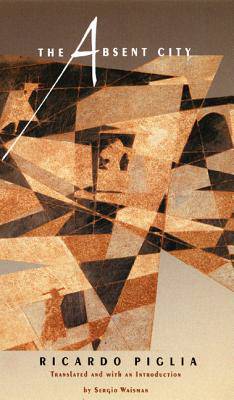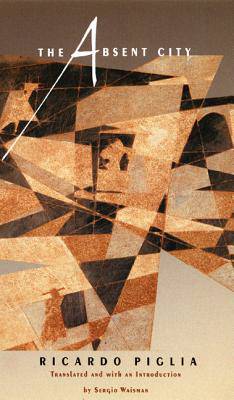
- Retrait gratuit dans votre magasin Club
- 7.000.000 titres dans notre catalogue
- Payer en toute sécurité
- Toujours un magasin près de chez vous
- Retrait gratuit dans votre magasin Club
- 7.000.0000 titres dans notre catalogue
- Payer en toute sécurité
- Toujours un magasin près de chez vous
Description
Widely acclaimed throughout Latin America after its 1992 release in Argentina, The Absent City takes the form of a futuristic detective novel. In the end, however, it is a meditation on the nature of totalitarian regimes, on the transition to democracy after the end of such regimes, and on the power of language to create and define reality. Ricardo Piglia combines his trademark avant-garde aesthetics with astute cultural and political insights into Argentina's history and contemporary condition in this conceptually daring and entertaining work.
The novel follows Junior, a reporter for a daily Buenos Aires newspaper, as he attempts to locate a secret machine that contains the mind and the memory of a woman named Elena. While Elena produces stories that reflect on actual events in Argentina, the police are seeking her destruction because of the revelations of atrocities that she-the machine-is disseminating through texts and taped recordings. The book thus portrays the race to recover the history and memory of a city and a country where history has largely been obliterated by political repression. Its narratives-all part of a detective story, all part of something more-multiply as they intersect with each other, like the streets and avenues of Buenos Aires itself.
The second of Piglia's novels to be translated by Duke University Press-the first was Artifical Respiration-this book continues the author's quest to portray the abuses and atrocities that characterize dictatorships as well as the difficulties associated with making the transition to democracy. Translated and with an introduction by Sergio Waisman, it includes a new afterword by the author.
The novel follows Junior, a reporter for a daily Buenos Aires newspaper, as he attempts to locate a secret machine that contains the mind and the memory of a woman named Elena. While Elena produces stories that reflect on actual events in Argentina, the police are seeking her destruction because of the revelations of atrocities that she-the machine-is disseminating through texts and taped recordings. The book thus portrays the race to recover the history and memory of a city and a country where history has largely been obliterated by political repression. Its narratives-all part of a detective story, all part of something more-multiply as they intersect with each other, like the streets and avenues of Buenos Aires itself.
The second of Piglia's novels to be translated by Duke University Press-the first was Artifical Respiration-this book continues the author's quest to portray the abuses and atrocities that characterize dictatorships as well as the difficulties associated with making the transition to democracy. Translated and with an introduction by Sergio Waisman, it includes a new afterword by the author.
Spécifications
Parties prenantes
- Auteur(s) :
- Traducteur(s):
- Editeur:
Contenu
- Nombre de pages :
- 160
- Langue:
- Anglais
Caractéristiques
- EAN:
- 9780822325864
- Date de parution :
- 15-11-00
- Format:
- Livre broché
- Format numérique:
- Trade paperback (VS)
- Dimensions :
- 138 mm x 236 mm
- Poids :
- 244 g

Les avis
Nous publions uniquement les avis qui respectent les conditions requises. Consultez nos conditions pour les avis.






